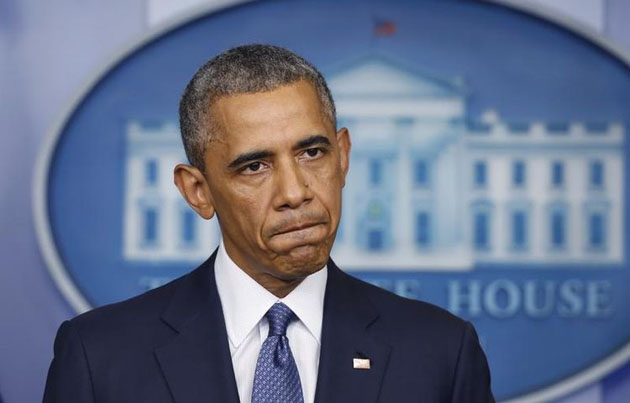


U.S. experts hold an overall negative view of future Sino-U.S. relations, and many are not satisfied with President Obama’s policy toward China.
China views the U.S. Asia rebalancing as a problematic strategy, and strongly opposes THAAD deployment in South Korea. Meanwhile, the U.S. does not accept China’s assertiveness in foreign policy, especially in the case of the South China Sea, said Dennis Wilder, a senior fellow on global issues at Georgetown University, at a panel discussion on July 16 at the 5th World Peace Forum.
Elizabeth Economy, senior fellow and director for Asia Studies at the Council on Foreign Affairs, stated that the Sino-U.S. relationship has not met Obama's expectations. Although Obama endeavored to enhance bilateral ties with China, Economy believed that American politicians have been demonstrating an increasingly reduced willingness to cooperate.
There have been eight rounds of U.S.-China Strategic and Economic Dialogue since 2009. Wilder argued that the dialogue no longer acts as a platform to promote mutual trust, as it did in its early years.
Some American companies complain that they do not feel welcome in China, and that China's "negative list" of the bilateral investment treaty (BIT) talk is too long. According to a survey conducted by the American Chamber of Commerce in China, 77 percent of surveyed enterprises claim that they currently feel less welcome in China than in the past.
Wilder expressed regret that American enterprises are reluctant to speak for China in front of the American government. He pointed out that, looking ahead, it is important for the U.S. to have a secretary of the treasury who understands and can properly deal with China.
Economy praised the cooperation between China and the U.S. on several global issues, including the fight against Ebola, the crisis in Syria and carbon emissions reduction. Economy said she views China as a leading actor rather than an emerging one on the stage of international affairs.
At the same time, Economy criticized Washington for failing to accurately evaluate some of China’s initiatives. Echoing Economy’s opinion, Su Ge, president of the China Institute of International Studies in Beijing said that certain American publications tend to interpret the evolving major power relationship between China and the U.S. as a new relationship between two hegemonies. Su said that, in fact, what President Xi really wants is to build a stronger Sino-U.S. relationship that benefits both nations.
 Who Will Fit The Chinese Roles In Game Of Thrones?
Who Will Fit The Chinese Roles In Game Of Thrones? China's Hubei Shennongjia added to World Heritage List
China's Hubei Shennongjia added to World Heritage List "Straddling bus" starts production in east China
"Straddling bus" starts production in east China Girl goes viral for finger-long toes
Girl goes viral for finger-long toes Five made-in-China hi-tech breakthroughs
Five made-in-China hi-tech breakthroughs HK-Zhuhai-Macao Bridge to open to traffic
HK-Zhuhai-Macao Bridge to open to traffic China opens its first combined transport service to Nepal
China opens its first combined transport service to Nepal Students take stylish bikini graduations photos
Students take stylish bikini graduations photos Charming dancing students pose for graduation photos
Charming dancing students pose for graduation photos Top 10 livable Chinese cities
Top 10 livable Chinese cities Top 20 hottest women in the world in 2014
Top 20 hottest women in the world in 2014 Top 10 hardest languages to learn
Top 10 hardest languages to learn China’s Top 10 Unique Bridges, Highways and Roads
China’s Top 10 Unique Bridges, Highways and Roads Barring Russia will tarnish Olympic spirit
Barring Russia will tarnish Olympic spirit Wukan disputes highlight conflict of interest at heart of rural development
Wukan disputes highlight conflict of interest at heart of rural development S.Korean companies in China say they’re not impacted by anti-missile system
S.Korean companies in China say they’re not impacted by anti-missile system Couples say dedication, not time, determines the strength of a marriage
Couples say dedication, not time, determines the strength of a marriageDay|Week